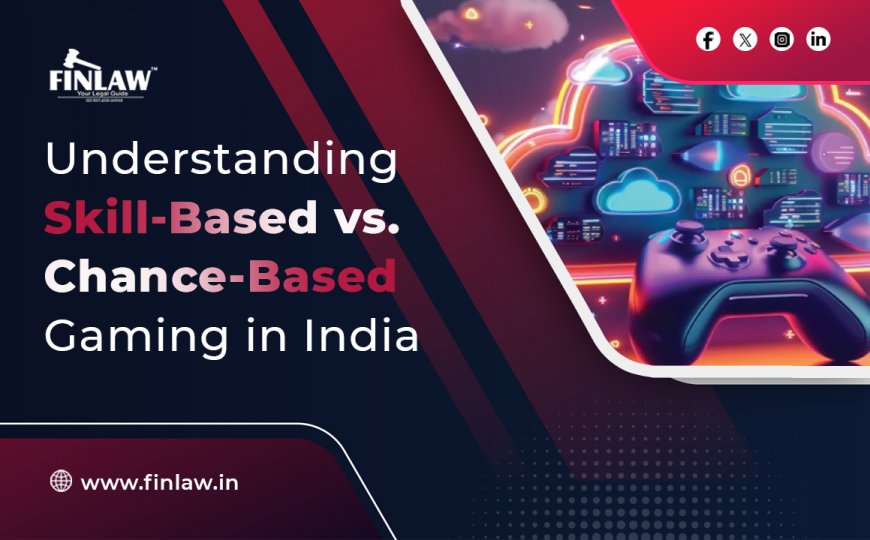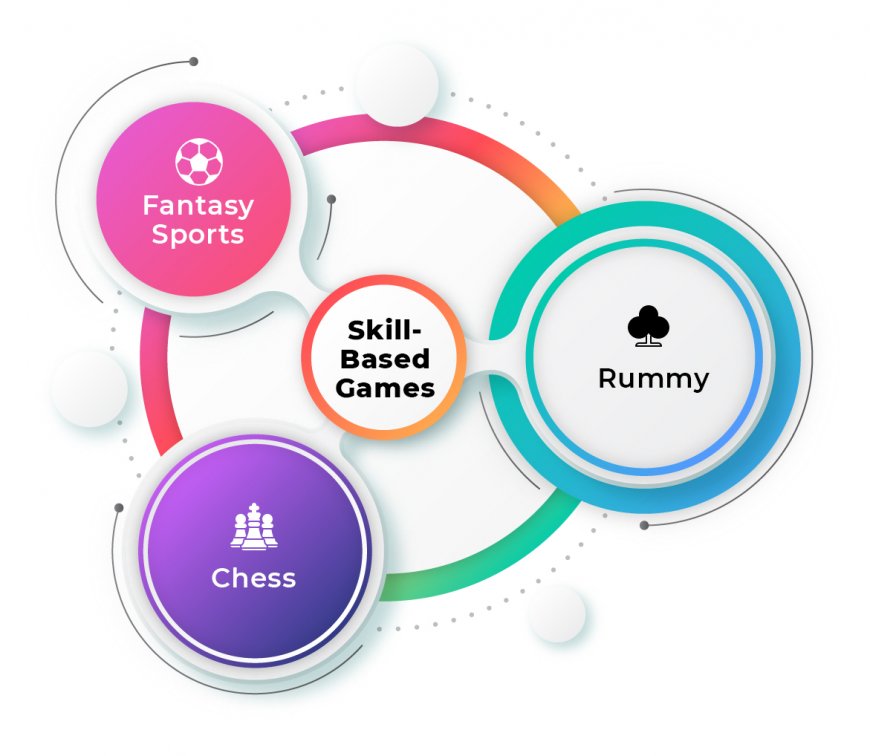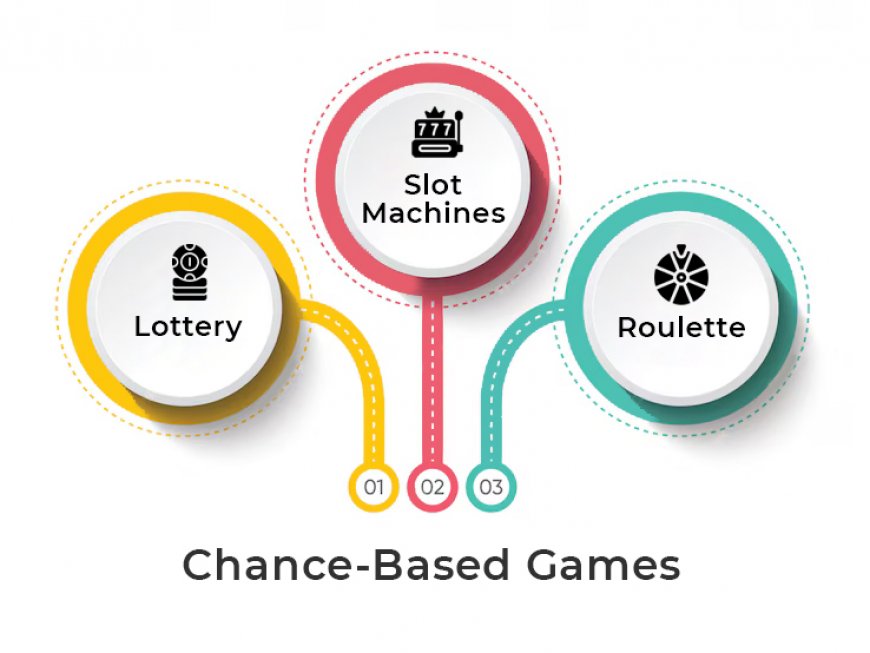Understanding Skill-Based vs Chance-Based Gaming in India
Discover the legal differences between skill-based and chance-based gaming in India, key examples, regulations, and emerging industry trends.

India’s online gaming industry is rapidly evolving, bringing with it a mix of opportunities and challenges. One of the key aspects shaping the legal framework for gaming in India is the distinction between skill-based and chance-based gaming. This differentiation not only affects the regulatory environment but also determines the legality of various gaming formats.
In this article, we will explore the definitions, legal implications, and examples of both categories while providing insights into how businesses and players can navigate the complex landscape. For a deeper dive into the broader legal framework, you can refer to our detailed guide on gaming law in India.
What is Skill-Based Gaming?
Skill-based games are those where the outcome is primarily determined by a player’s knowledge, strategy, and expertise rather than luck. Courts in India have often recognized skill-based games as legitimate forms of gaming and have exempted them from prohibitory gambling laws in most states.
Examples of Skill-Based Games:

- Fantasy Sports: Platforms like Dream11 and MPL operate under the premise that users make strategic decisions to create virtual teams.
- Chess: A game entirely dependent on intellectual and strategic prowess.
- Rummy: Courts in India have categorized rummy as a skill-based game due to the need for strategy and memory retention.
Legal Framework for Skill-Based Gaming
- State-Specific Regulations: While states like Karnataka and Tamil Nadu have previously attempted to regulate or ban skill-based gaming, courts have overturned such measures when it comes to games of skill.
- Online Platforms: Skill-based gaming platforms often operate with fewer restrictions compared to chance-based games, making this category a booming sector in India.
For an in-depth understanding of how these rules apply online, read our article on online gaming rules.
What is Chance-Based Gaming?
Chance-based games, also known as games of luck, are those where outcomes are largely dependent on randomness or uncontrollable factors. In most parts of India, these games fall under the ambit of gambling laws and are subject to stringent regulation or outright prohibition.
Examples of Chance-Based Games:

- Lottery: A classic example of a game relying purely on chance.
- Slot Machines: Predominantly found in casinos, their outcomes depend on random number generation.
- Roulette: Players bet on numbers, colors, or other factors, but the results are entirely luck-driven.
Legal Framework for Chance-Based Gaming
- Prohibited in Most States: Except for lotteries and horse racing in some cases, most chance-based gaming formats are considered illegal.
- Public Gambling Act, 1867: This central law governs gambling activities and explicitly prohibits games of chance unless specifically allowed by state laws.
Key Distinctions Between Skill-Based and Chance-Based Gaming
| Aspect | Skill-Based Gaming | Chance-Based Gaming |
| Determining Factor | Player’s skill and strategy | Luck or randomness |
| Legality | Legal in most states | Largely prohibited, with some exceptions |
| Popular Examples | Chess, Rummy, Fantasy Sports | Lottery, Slot Machines, Roulette |
| Regulation | More lenient regulations | Heavily regulated under gambling laws |
Understanding these distinctions can help individuals and businesses stay compliant with local gaming guidelines.
Judicial Interpretations and Precedents
Indian courts have played a crucial role in defining the legal boundaries for both skill-based and chance-based gaming. Key rulings include:
- Dr. K.R. Lakshmanan vs. State of Tamil Nadu (1996): The Supreme Court ruled that betting on horse racing involves elements of skill, making it distinct from pure gambling.
- State of Andhra Pradesh vs. K. Satyanarayana (1968): The court recognized rummy as a game of skill due to its need for memory, skill, and judgment.
These precedents underscore the importance of distinguishing between games of skill and games of chance within India’s broader gaming law framework.
Challenges in Defining Skill vs. Chance
Despite judicial clarity in some areas, certain games remain in a gray zone. Emerging formats like eSports, online poker, and hybrid games often blur the line between skill and chance, creating legal ambiguities.
Key Issues:

- State-Level Variations: Laws differ from one state to another, creating compliance challenges for gaming operators.
- Technological Evolution: With the rise of artificial intelligence and machine learning, defining the role of human skill is becoming more complex.
- Regulatory Uncertainty: As new gaming formats emerge, policymakers struggle to keep pace with evolving definitions.
To navigate these complexities, it’s essential to stay informed about evolving gaming guidelines.
Emerging Trends in Skill and Chance Gaming
- Hybrid Games: Combining elements of skill and chance, these games are attracting legal scrutiny.
- Global Influence: As India’s gaming market integrates with international platforms, cross-border regulations are influencing domestic laws.
- Player Awareness: Players are becoming increasingly conscious of their rights and responsibilities under online gaming rules.
These trends indicate that the lines between skill-based and chance-based gaming will continue to evolve, necessitating a robust legal framework.
Conclusion
The distinction between skill-based and chance-based gaming is critical for understanding the legal and regulatory landscape of India’s gaming industry. While skill-based games enjoy broader acceptance and fewer restrictions, chance-based games are heavily regulated due to their association with gambling.
For gaming operators, staying compliant with local laws is essential for sustainable operations. Players, too, should remain informed about their rights and responsibilities to avoid legal pitfalls.
To explore the overarching legal framework for online gaming in India, including state-specific laws, visit our comprehensive guide on Simplifying Online Gaming Laws in India: A Comprehensive Guide.
What's Your Reaction?



















